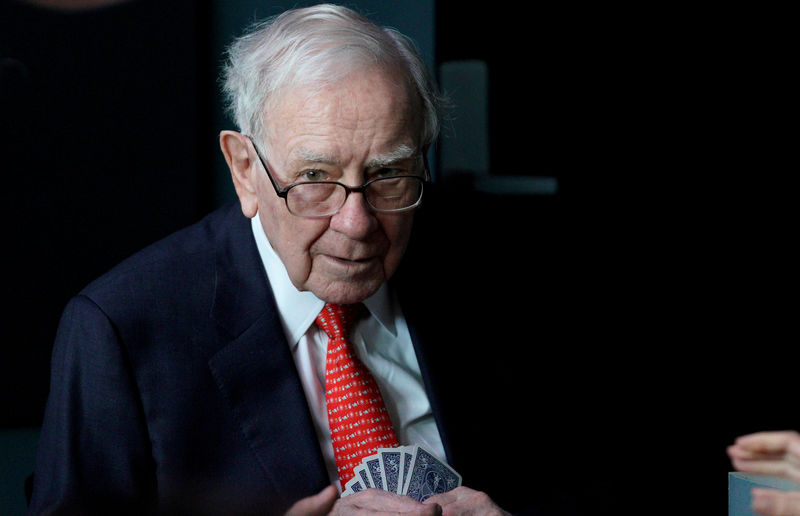By Jonathan Stempel
(Reuters) - Sinking stocks and deteriorating prospects from an investment in Kraft Heinz (NASDAQ:KHC) Co pummeled the bottom line of Warren Buffett's Berkshire Hathaway (NYSE:BRKa) Inc, which on Saturday reported a huge quarterly net loss even as operating profit soared.
The fourth-quarter net loss was $25.39 billion, or $15,467 per Class A share, reflecting more than $27.6 billion of investment losses, including from stocks Berkshire still owns.
That compared with a year-earlier profit of $32.55 billion, or $19,790 per Class A share, most of which resulted from a lowering of the U.S. corporate tax rate.
Results included a $3.02 billion writedown for intangible assets that Buffett said was "almost entirely" attributable to Kraft Heinz, in which Berkshire owns a 26.7 percent stake.
The packaged food company on Thursday shocked investors when it reported its own $15.4 billion writedown for Kraft, Oscar Mayer and other assets, and said U.S. securities regulators were examining its accounting practices.
Buffett also released his annual letter to Berkshire shareholders, which did not discuss Kraft Heinz's recent travails or the day-to-day management of the company by his business partner, the Brazilian firm 3G Capital.
Net results suffered because many of Berkshire's common stock holdings saw double-digit price declines, including a 30 percent decline in Apple Inc (NASDAQ:AAPL), its largest holding.
Accounting rules require Berkshire to report unrealized stock gains and losses with net income. This causes huge swings in net results, and Buffett has urged investors not to use them as a measure of Berkshire's business performance.
Quarterly operating profit rose 71 percent to $5.72 billion, or about $3,484 per Class A share, benefiting from improved results in many businesses including the Geico auto insurer and BNSF railroad.
Analysts on average expected operating profit of $3,349.04 per share, according to Refinitiv I/B/E/S data.
The decline in stock prices also pummeled Berkshire's book value per Class A share, which fell 7.1 percent in the quarter to $212,503.
Buffett had long used book value as a gauge of Berkshire's intrinsic worth.
But he told shareholders on Saturday it has "lost the relevance it once had," citing changes in Berkshire's business and investment mix, accounting rules, and the likelihood of additional stock buybacks that could depress it.
Book value, he said, has become "increasingly out of touch with economic reality."
Berkshire ended the year with $111.9 billion of cash and equivalents.
For all of 2018, Berkshire's operating profit rose 71 percent to $24.78 billion, while net income tumbled 91 percent to $4.02 billion.

Berkshire Class A shares closed at $302,000 on Friday, about 10 percent below its October record high.